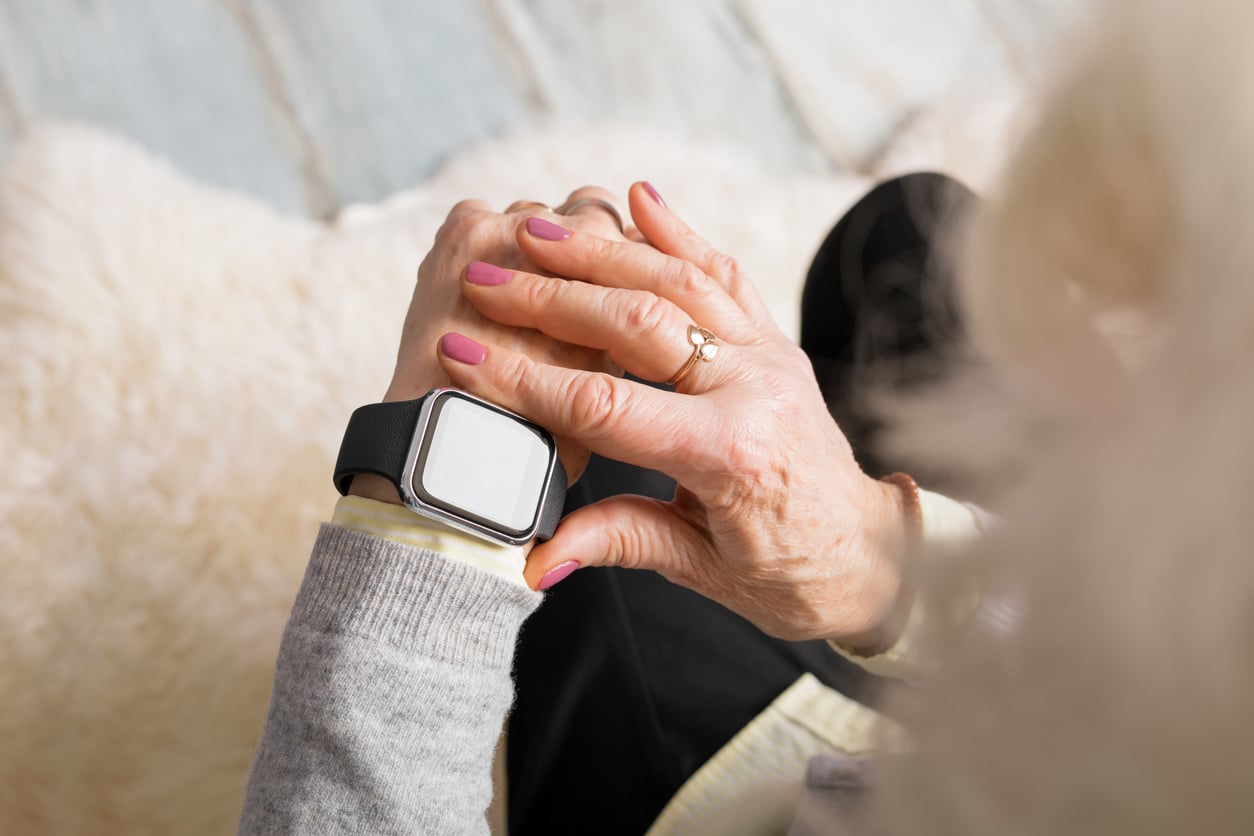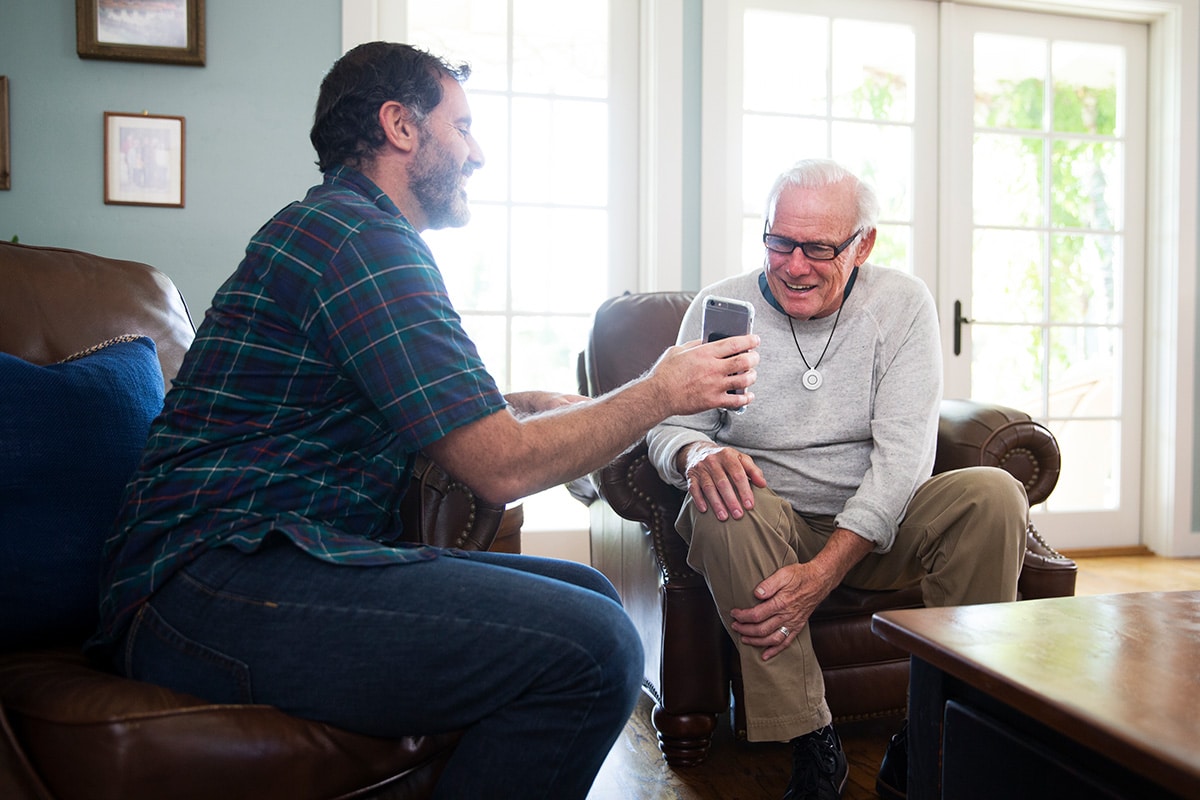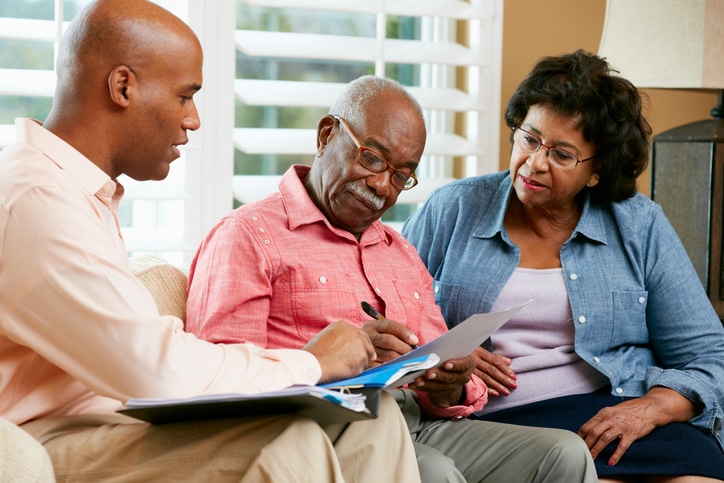Which is better in an emergency, a cell phone or a medical alert system? We will look at the pros and cons of each. You are the final arbiter in our cell phones vs. medical alert systems face-off, however, because the best device is the one you’re more likely to use.
Cell Phones
Many people use either a regular cell phone or a smartphone. You can dial 911 from a regular cell phone; some even have a dedicated button to summon help in an emergency.
If you own a smartphone, you have the additional benefit of being able to download a medical device app. Some apps are designed specifically for either iOS (iPhone) or Android operating systems, so you’ll need to check which one you have before you download.
Cell Phone Pros:
- There’s a cell phone to suit almost every budget.
- Older flip phones are inexpensive and can be used without a contact.
- Everyone knows how to dial 911.
- Emergency apps are available for smartphones.
Cell Phone Cons:
- Not everyone is comfortable using a smartphone.
- Smartphones and/or service plans can be expensive.
- You might not have your phone with you during a medical emergency, or you might drop the phone and be unable to reach it.
Medical Alert Systems
Many seniors choose to use a medical alert system to stay safe in case of an emergency. There are many types of systems that can go from home to vacation, depending on which one you select.
Medical Alert System Pros:
- There’s a medical alert system for every budget, from basic plans for your residence to all-inclusive plans that cover you at home and on the go.
- Systems usually include a wearable pendant or bracelet with a button you can press to summon help.
- They are usually waterproof, allowing you to wear them in the bath or shower.
- The system connects you to a response center that can summon help and has a list of your preferred contacts.
- Some systems use location technologies to help pinpoint your location.
- Some systems can sense a fall and automatically contact the response center if you are unable to push the button.
Medical Alert System Cons:
- Some people might be shy about wearing a medical alert pendant or bracelet.
- Medical alert systems may be more expensive than a basic flip phone and plan.
Medical Alert Systems for Every Lifestyle
If you’re still unsure about cell phones vs. medical alert systems, here’s a comparison of Lifeline medical alert devices for seniors:
- HomeSafe: This standard service works in the home. It consists of a communication unit and a help button pendant that provides 24-7 access to the Response Center.
- HomeSafe with AutoAlert: In addition to everything included in the standard service, HomeSafe with AutoAlert automatically contacts the Response Center if it detects a fall and you’re unable to press the button.1
- On the Go: This service adds the same protection for when you’re on the go, with advanced GPS locator technology to help the Response Center pinpoint your location. It can even locate you when you’re on vacation.
Whatever your lifestyle, you’ll feel safer, more secure, and more confident as you go about your daily activities knowing that help is always within reach.




